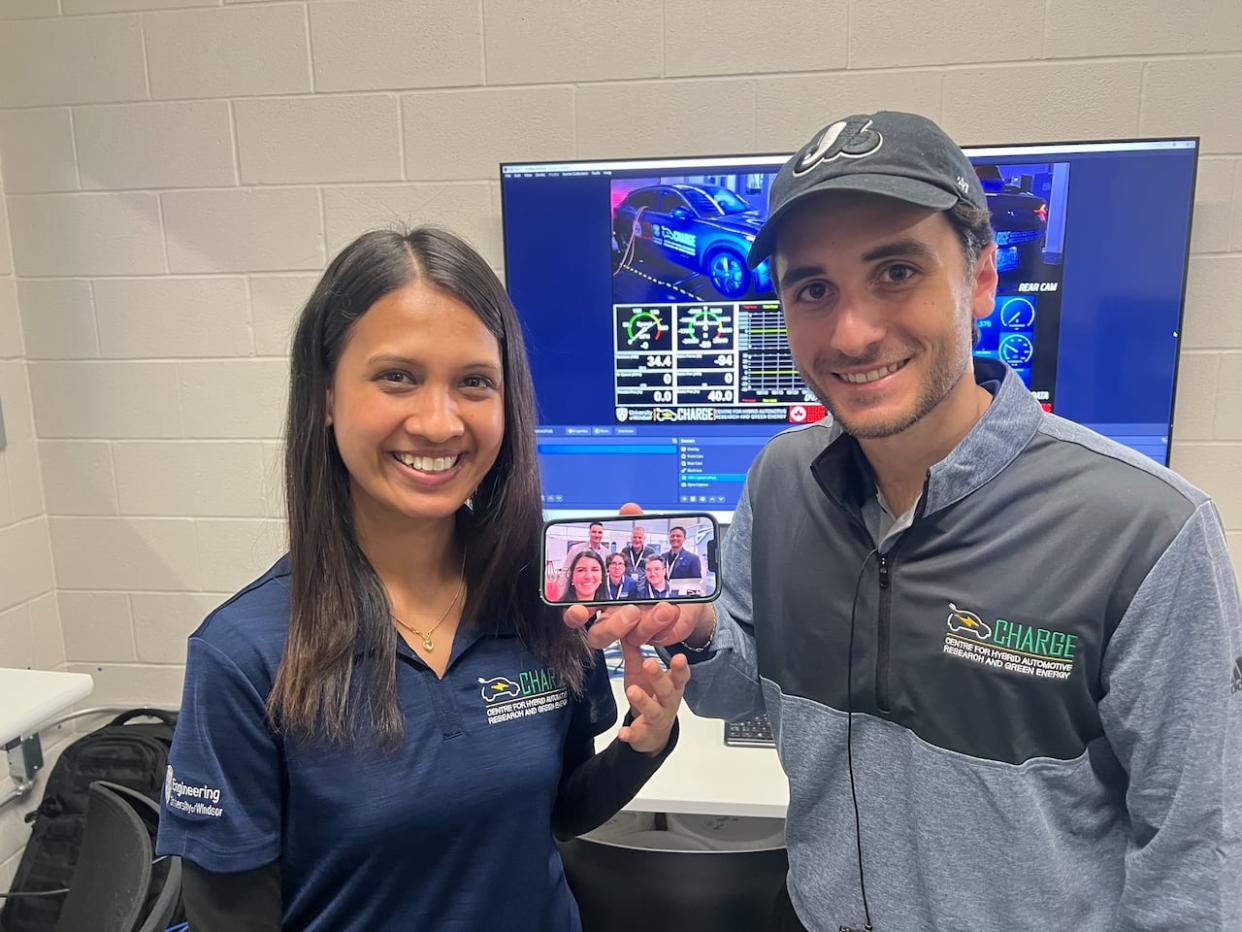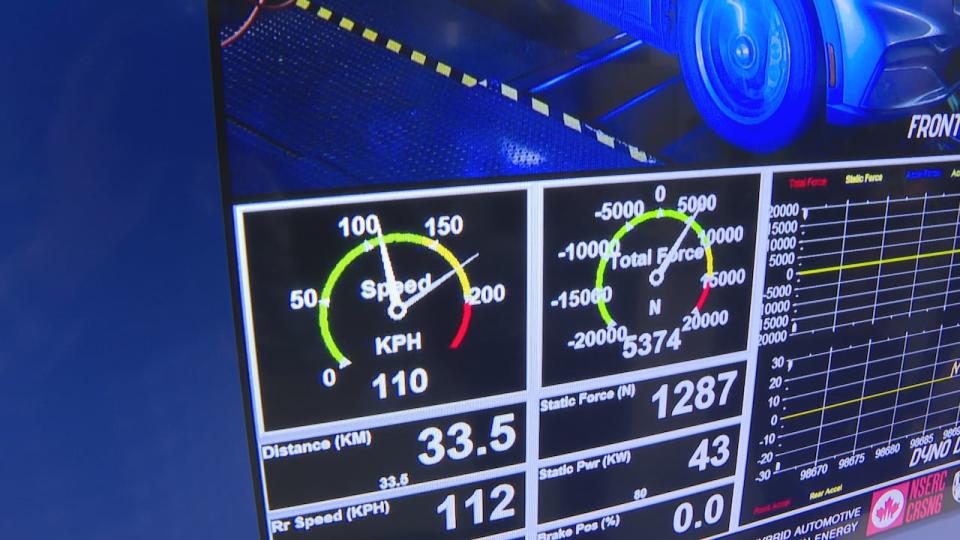A Ford Mustang Mach-E in this Windsor, Ont., lab is being driven from Germany

Not many people can say they've driven a car from across the Atlantic Ocean.
But a team of researchers from the University of Windsor, both in a lab on the university's campus and in Hanover, Germany, are making that happen this week.
"They've been able to set up so that the simulator here in Hanover is connected to our dynamometer located at the University of Windsor where we have the Mustang Mach-E on it," said Bill Van Heyst, the dean of engineering at the University of Windsor.
"So when you're here in Germany, you press the accelerator pedal, you can actually see the wheels turn on the car in Windsor."
A team from the University of Windsor's Centre for Hybrid Automotive Research and Green Energy — the CHARGE lab — and a driving simulator made the trek to Germany for the Hanover Messe Expo, one of the largest trade shows for companies in mechanical and electrical engineering.
Attendees can make the Mustang Mach-E travel up to 170 kilometres per hour back in the lab at the university.
The car being controlled isn't on the streets: In fact, it's on what researchers termed a "treadmill for vehicles," a dynamometer. The simulator also adjusts to the speed, tipping back slightly as you hit the accelerator.
Van Heyst says its a valuable research tool, one they want to publicize to industries in Germany.
"It basically tells people that the University of Windsor and the Faculty of Engineering, even though we're located across the Atlantic, we can do research, we can collaborate, and it's almost instantaneous no matter where you are around the world," he said. "I think it really emphasizes that level of collaboration. That the world is such a small place now."

A Ford Mustang in a lab in Windsor, Ont., can be driven remotely through a simulator from Hanover, Germany. (Jacob Barker/CBC)
And it's getting a lot of attention: The ambassador for Canada in Germany took a seat behind the simulator.
"Interestingly enough, we get a lot of young men coming by who are gamers who love the look at the of the gaming console and they want to find out more about it," Van Heyst said.
"Which isn't a bad thing because we're getting leads on potentially young grad students to come to Canada to work in the CHARGE lab."
It means some early mornings for the graduate student team in Windsor, who arrive at the lab around 2 a.m. so the car is ready to go for conference-goers in Germany six hours ahead.
Matteo Pizzuto is one of the team members who stayed in Windsor to make sure the car and its various parts run smoothly during the duration of the trade show. It's the first time they've shown off this tech like this.
"So far so good. Everything's been super smooth. A lot of good reviews so far," he said. "It was a long project. We brought it right down to the wire with shipping and everything, but everything has been smooth so far."
From here, the team is hopeful it could lead to more research opportunities for Windsor and the university.
"There's some important people at this conference, a lot of industry people and a lot of academia people, relationships first and foremost. And who knows, maybe an industry project in the future, if they see this, they hop in the simulator, they're interested in us," Pizzuto said.
"I think it's super cool. Who can say they've operated a car fully remotely across the world?"


